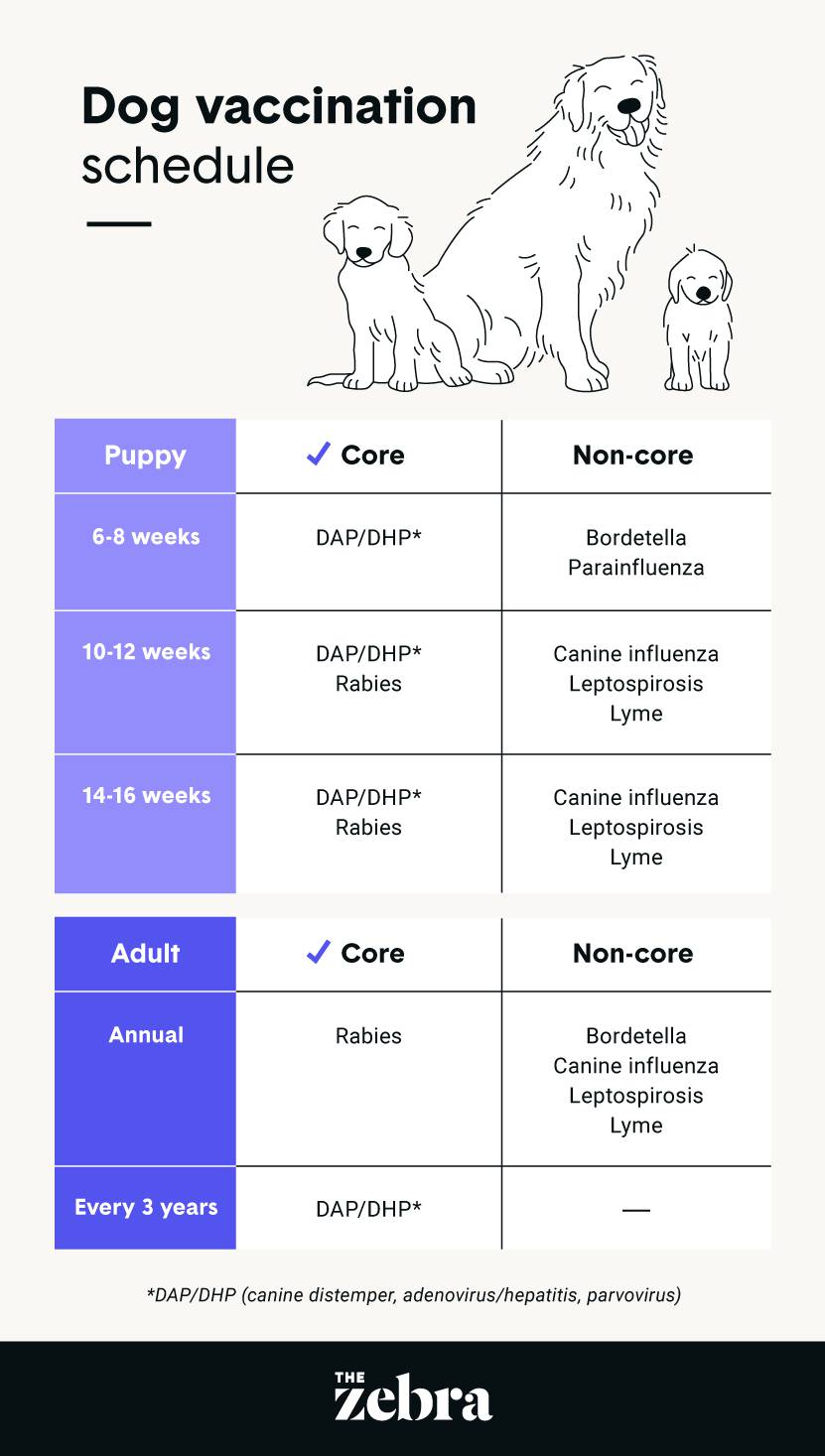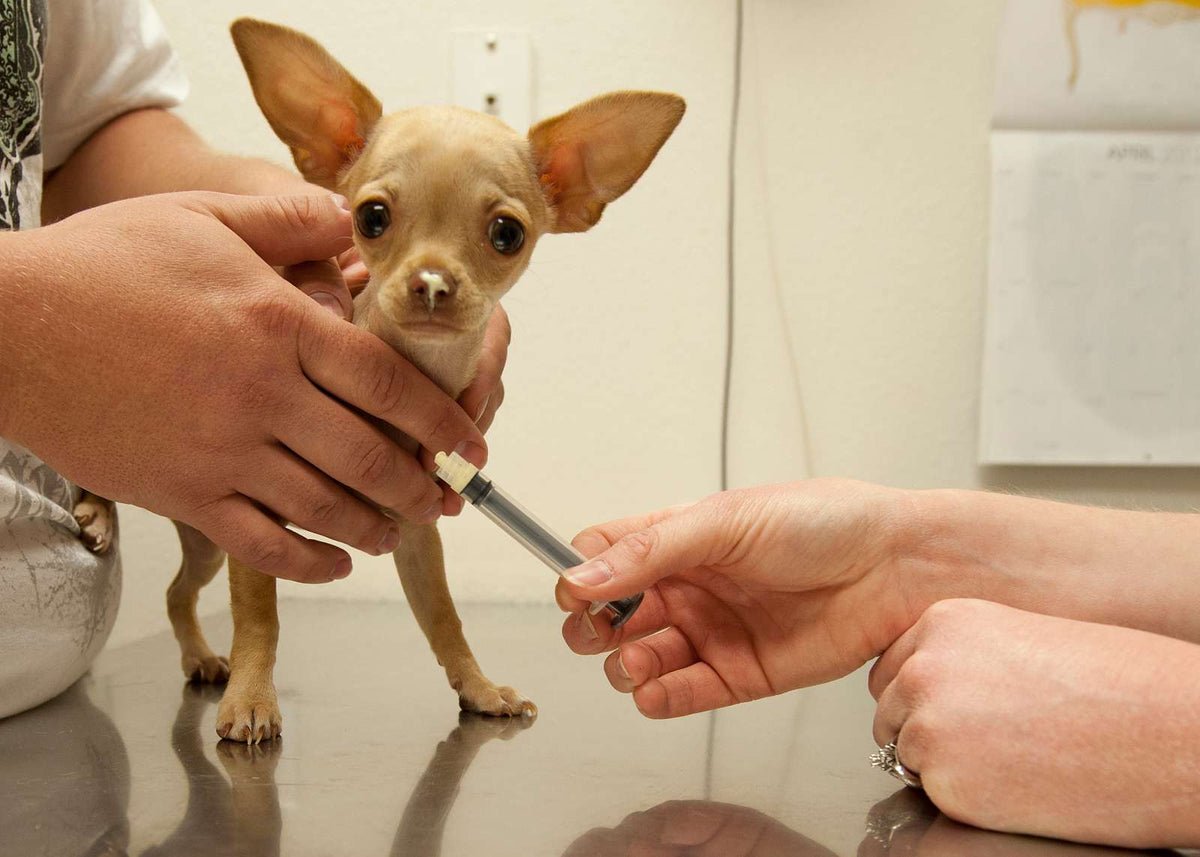As a professional in the field of veterinary medicine, I have come across a surprising fact that many new Chihuahua owners are not aware of. Did you know that Chihuahua puppies require a series of vaccinations to protect them from common diseases? These shots are crucial in ensuring their overall health and well-being as they grow and develop.
When it comes to the shots that Chihuahua puppies need, it is important to understand their history and the potential risks they face. These tiny pups are susceptible to diseases like rabies, distemper, parvovirus, and canine hepatitis. Fortunately, there is a blend of vaccines available that can protect them from these illnesses. In fact, statistics show that ensuring your Chihuahua is up-to-date on their shots can reduce their risk of contracting these diseases by up to 90%! By staying diligent and following the recommended vaccination schedule, you can provide your Chihuahua puppy with the protection they need to live a happy and healthy life.

What Shots Do Chihuahua Puppies Need?
Chihuahua puppies are adorable little bundles of energy and love. As a responsible pet owner, it’s important to ensure that your puppy receives the necessary vaccinations to keep them healthy and protected from various diseases. Vaccinations play a vital role in preventing infectious diseases that can be potentially life-threatening for your furry friend. In this article, we will discuss the essential shots that chihuahua puppies need to receive to stay healthy and happy.
1. Distemper Combination Vaccine
The distemper combination vaccine is a crucial vaccination for chihuahua puppies. It protects against a combination of contagious diseases, including distemper, parvovirus, adenovirus, and parainfluenza. Distemper is a highly contagious viral disease that affects the respiratory, gastrointestinal, and nervous systems. Parvovirus, another dangerous illness, causes severe vomiting and diarrhea and can be fatal, especially in young puppies.
The vaccination schedule for the distemper combination vaccine typically starts when the puppy is around 6 to 8 weeks old, with boosters given every 3 to 4 weeks until the puppy reaches 16 weeks of age. After the initial series of vaccinations, adult chihuahuas should receive a booster shot every 1 to 3 years, as recommended by their veterinarian.
It’s important to note that chihuahua puppies should not come into contact with other dogs or areas where other dogs frequent until they have completed their vaccination series. This precaution helps protect them from potential exposure to contagious diseases.
2. Rabies Vaccine
The rabies vaccine is a legal requirement in most states for dogs, including chihuahuas. Rabies is a deadly viral disease that affects the central nervous system and can be transmitted to humans through bites or scratches from infected animals. It’s essential to vaccinate chihuahua puppies against rabies to ensure their safety and protect public health.
The first rabies vaccination for chihuahua puppies is typically given at around 12 to 16 weeks of age, and a booster shot is administered a year later. After the initial series, adult chihuahuas should receive a rabies vaccine every 1 to 3 years, depending on the local laws and veterinarian recommendations.
Remember to keep your chihuahua puppy away from wild animals, and always keep them on a leash or in a secure fenced area to prevent potential exposure to rabies.
3. Bordetella Vaccine
The bordetella vaccine, commonly known as the kennel cough vaccine, protects against a highly contagious respiratory infection called bordetella bronchiseptica. Chihuahuas are prone to respiratory issues, and the bordetella vaccine helps prevent kennel cough, a condition characterized by a persistent cough, nasal discharge, and fever.
This vaccination is particularly important if you plan to board your chihuahua or if they will be exposed to other dogs frequently. The initial vaccine is typically given when the puppy is around 6 to 8 weeks old, followed by a booster shot after 2 to 4 weeks. Annual or semi-annual boosters are recommended, depending on the dog’s lifestyle and risk of exposure.
Regular grooming and keeping your chihuahua’s living environment clean can also help reduce the risk of respiratory infections.
4. Leptospirosis Vaccine
The leptospirosis vaccine protects against a bacterial infection caused by the Leptospira bacteria. This disease can be transmitted through the urine of infected animals and can cause liver and kidney damage in dogs, leading to organ failure. Chihuahuas can come into contact with infected urine in various outdoor environments, including standing water, soil, and even on the paws of other animals.
The initial vaccination for leptospirosis is usually given when the puppy is around 12 weeks old, followed by a booster shot after 2 to 4 weeks. Annual boosters are recommended to maintain their protection against this potentially dangerous disease. Consult with your veterinarian to determine if the leptospirosis vaccine is necessary for your chihuahua based on the risk of exposure in your area.
It’s also crucial to keep your chihuahua away from potentially contaminated areas and prevent them from drinking from stagnant water sources.
5. Canine Parainfluenza Vaccine
The canine parainfluenza vaccine is essential in protecting chihuahua puppies against a highly contagious viral respiratory infection. Parainfluenza virus is one of the common causes of kennel cough and can spread rapidly in environments where dogs interact closely with one another.
Chihuahua puppies typically receive their first parainfluenza vaccination as part of the distemper combination vaccine series. However, depending on the specific vaccine used, additional boosters may be required. Regular boosters may also be recommended for adult chihuahuas who are frequently exposed to other dogs or live in high-density areas.
Keeping your chihuahua away from sick dogs and maintaining good hygiene practices can help prevent the spread of parainfluenza and other respiratory infections.
6. Canine Influenza Vaccine
The canine influenza vaccine protects against the highly contagious canine influenza virus, which can cause respiratory symptoms similar to those of the human flu. While the risk of dogs contracting canine influenza is relatively low, vaccination may be recommended for chihuahuas who are frequently exposed to other dogs, such as those who participate in dog shows or daycare.
The canine influenza vaccine is typically administered in two doses, given 2 to 4 weeks apart. Annual boosters may be necessary for dogs with an ongoing risk of exposure.
Keep in mind that the canine influenza vaccine does not protect against other respiratory infections, such as bordetella or parainfluenza, so discuss with your veterinarian the best vaccination approach for your chihuahua.
7. Giardia Vaccine
The giardia vaccine helps protect against Giardia, a microscopic parasite that can cause intestinal infections in dogs. While giardiasis is not typically a life-threatening condition, it can cause diarrhea, vomiting, and weight loss in infected dogs.
The giardia vaccine is not considered a core vaccine and is usually given to chihuahuas who are at a higher risk of exposure, such as those living in areas with a high prevalence of giardia or frequenting environments where other dogs may be infected.
Consult with your veterinarian to determine if the giardia vaccine is necessary for your chihuahua based on their specific circumstances and risk of exposure.
Additional Vaccination Considerations
It’s important to note that the vaccination needs of chihuahua puppies may vary based on their individual circumstances, local disease prevalence, and exposure risks. Regular check-ups with a knowledgeable veterinarian are crucial for determining the right vaccination schedule and ensuring your puppy’s overall health and well-being.
Remember that vaccinations are just one part of a comprehensive approach to keeping your chihuahua healthy. Proper nutrition, regular exercise, and routine veterinary care are equally important in providing optimal care for your furry friend. By being proactive in your chihuahua puppy’s healthcare, you can help set them up for a long, happy, and healthy life.
According to statistics, vaccinations have greatly reduced the incidence of many canine diseases. As responsible pet owners, it is our duty to ensure that our chihuahua puppies receive the necessary shots to protect them from potential health risks. By following a veterinarian’s recommendations and maintaining a regular vaccination schedule, we can keep our beloved chihuahuas happy and healthy for years to come.
Key Takeaways
- Chihuahua puppies need a series of vaccinations to protect them from common diseases.
- The initial shots include distemper, parvovirus, and hepatitis vaccines.
- Rabies vaccination is also necessary to comply with local laws.
- A series of booster shots are required to ensure lifelong protection.
- Regular check-ups with a veterinarian are important to keep vaccinations up to date.
Frequently Asked Questions
Welcome to our FAQ section on the shots that chihuahua puppies need! If you’re a new chihuahua puppy owner or thinking about getting one, it’s important to understand their vaccination needs for their overall health and well-being. Below are some commonly asked questions related to this topic:
1. When should I start getting shots for my chihuahua puppy?
It’s recommended to start your chihuahua puppy’s vaccination schedule at around 6 to 8 weeks old. During this time, they should receive their first round of shots, known as the core vaccines. These vaccines protect against diseases such as distemper, parvovirus, hepatitis, and rabies.
It’s essential to follow your veterinarian’s guidance on the appropriate timing, as they may have specific recommendations based on your puppy’s health and risk factors. Regular check-ups with your vet will help ensure your chihuahua puppy stays up to date with their shots.
2. What are the core vaccines that chihuahua puppies need?
Chihuahua puppies require certain core vaccines to protect them from common diseases. These vaccines include the distemper vaccine, an important immunization that guards against a highly contagious and potentially fatal virus. The parvovirus vaccine is another crucial shot, protecting against a highly contagious gastrointestinal virus that can be deadly for puppies.
Additionally, the hepatitis vaccine, also known as the adenovirus-2 vaccine, provides protection against a viral infection that affects the liver. Lastly, the rabies vaccine is necessary to protect against this fatal disease. Your veterinarian can provide you with a complete list of the core vaccines that your chihuahua puppy should receive.
3. Are there any additional non-core vaccines recommended for chihuahua puppies?
In addition to the core vaccines, there are some non-core vaccines that may be recommended for chihuahua puppies based on their lifestyle and risk factors. These vaccines include protection against diseases like Bordetella bronchiseptica, which can cause kennel cough, and Lyme disease, which is transmitted through tick bites.
Other non-core vaccines that may be considered for chihuahua puppies include vaccines for leptospirosis, a bacterial disease, and canine influenza. Discuss with your veterinarian whether these non-core vaccines are necessary based on your puppy’s specific needs and exposure risks.
4. How often should I get my chihuahua puppy vaccinated?
The frequency of chihuahua puppy vaccinations will vary depending on the specific vaccine and your veterinarian’s recommendations. In general, puppies require a series of vaccinations administered at specific intervals to build immunity. These initial vaccinations are usually given in three to four-week intervals until the puppy is around 16 weeks old. After the initial series, boosters are typically given annually or every three years.
It’s important to establish a vaccination schedule with your veterinarian and follow their recommendations for your chihuahua puppy’s ongoing vaccine needs. Regular check-ups and discussions with your vet will help ensure your puppy is receiving the appropriate vaccinations at the right times.
5. Are there any potential side effects from chihuahua puppy vaccinations?
Like with any medical intervention, there can be potential side effects to chihuahua puppy vaccinations. While rare, some puppies may experience mild side effects such as lethargy, slight fever, or soreness at the injection site. These side effects typically resolve within a day or two.
Serious side effects are extremely rare but can include allergic reactions or more severe symptoms. It’s important to monitor your chihuahua puppy after vaccinations and contact your veterinarian if you notice any concerning symptoms. Your veterinarian will provide you with information on what to look out for and how to address any potential side effects.

